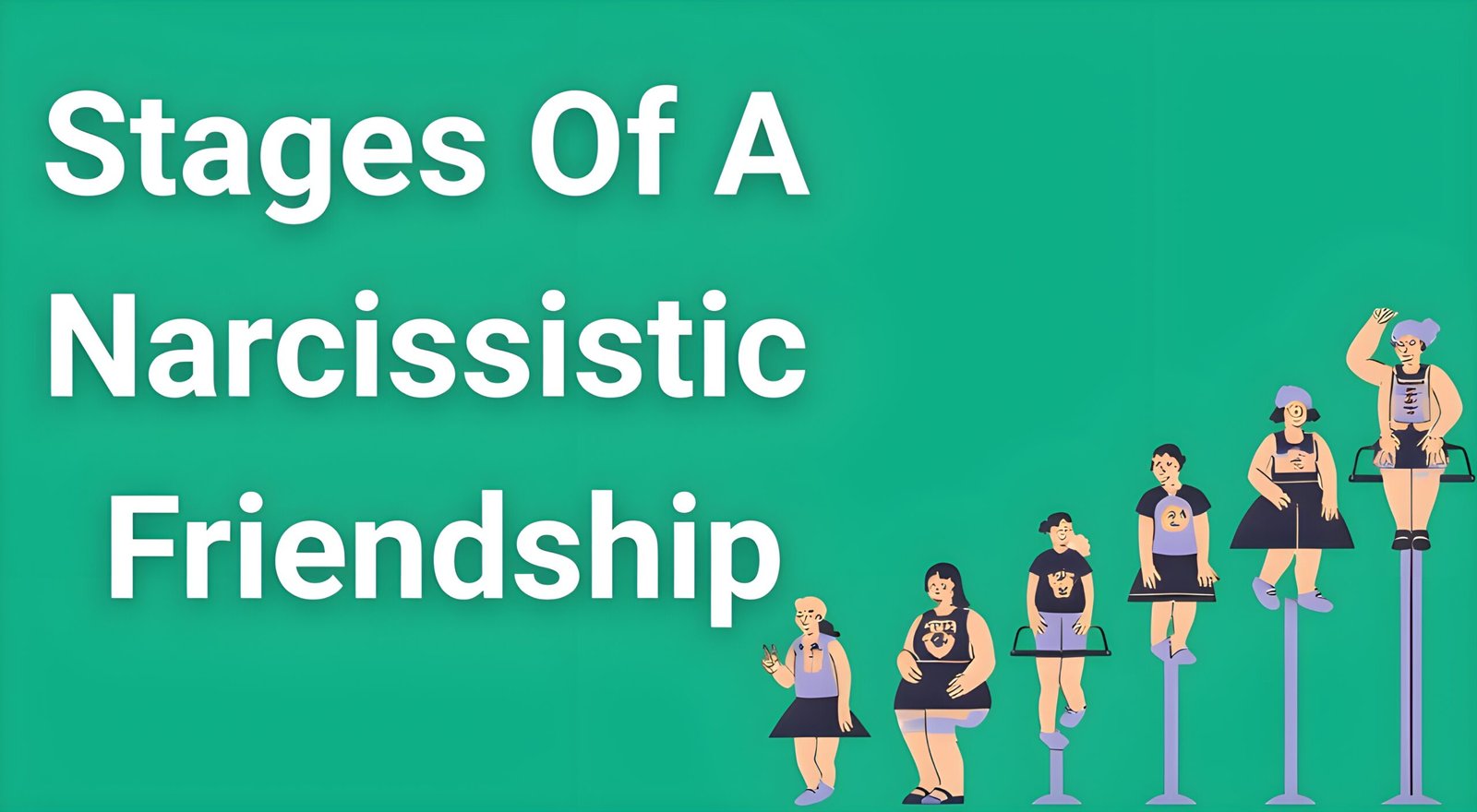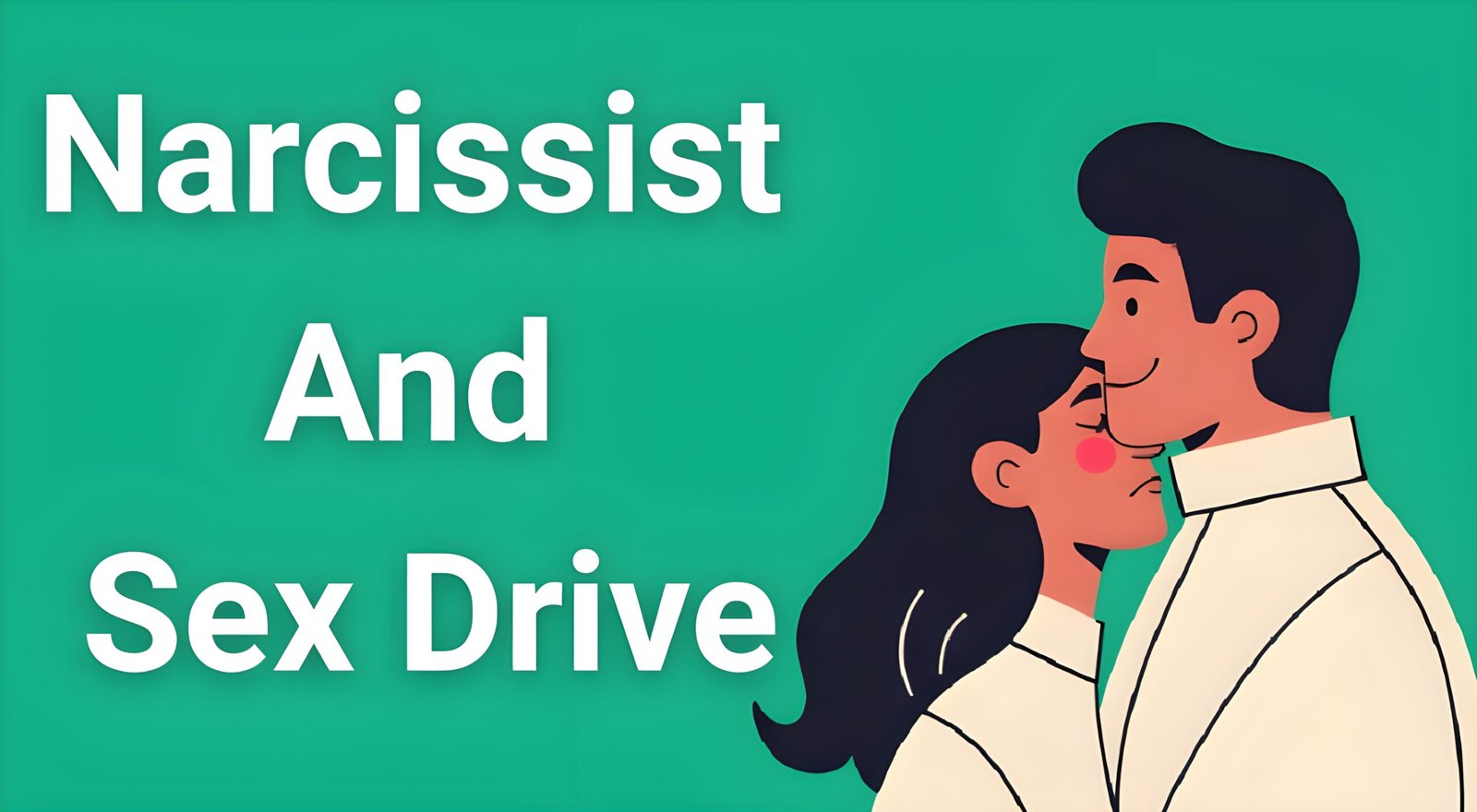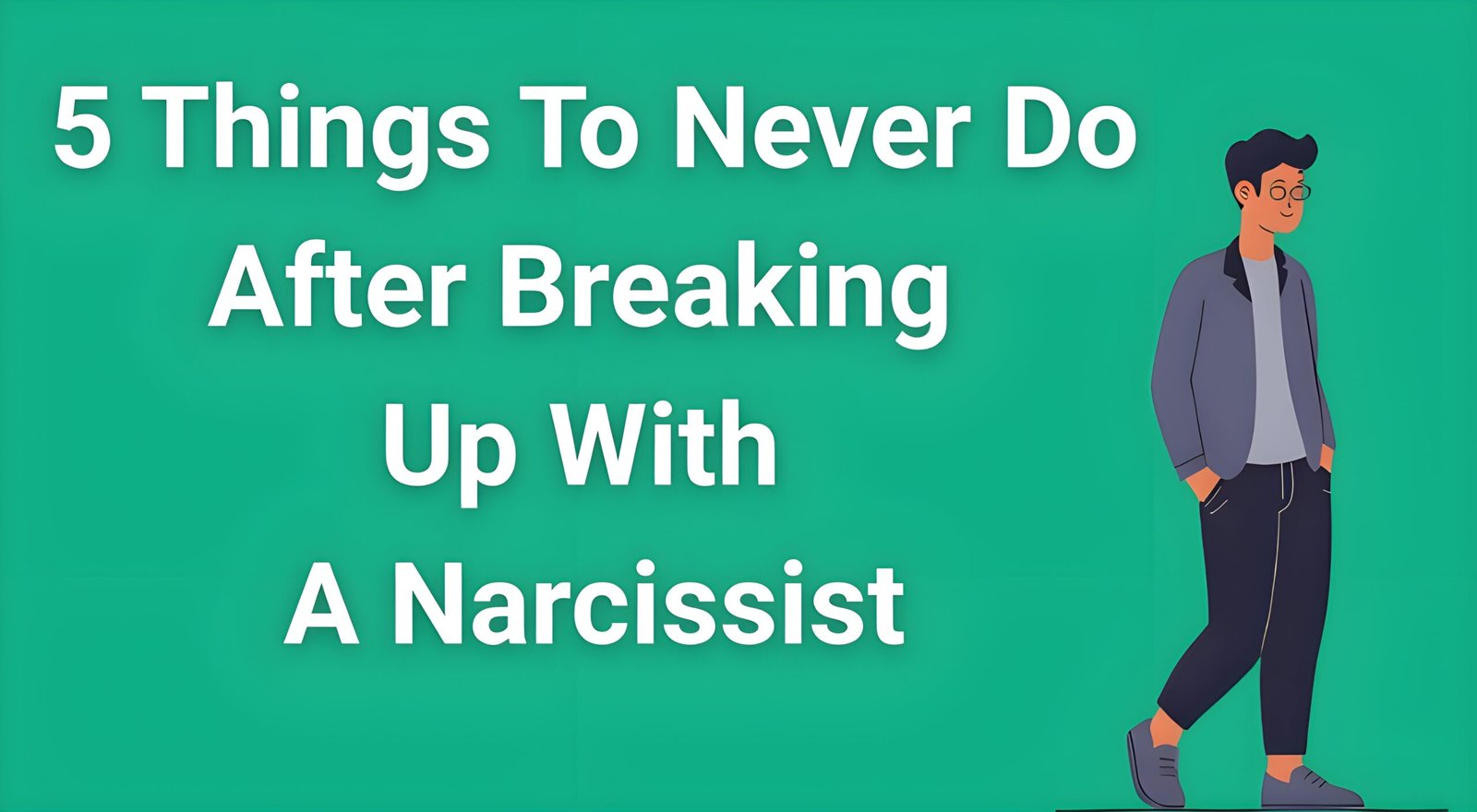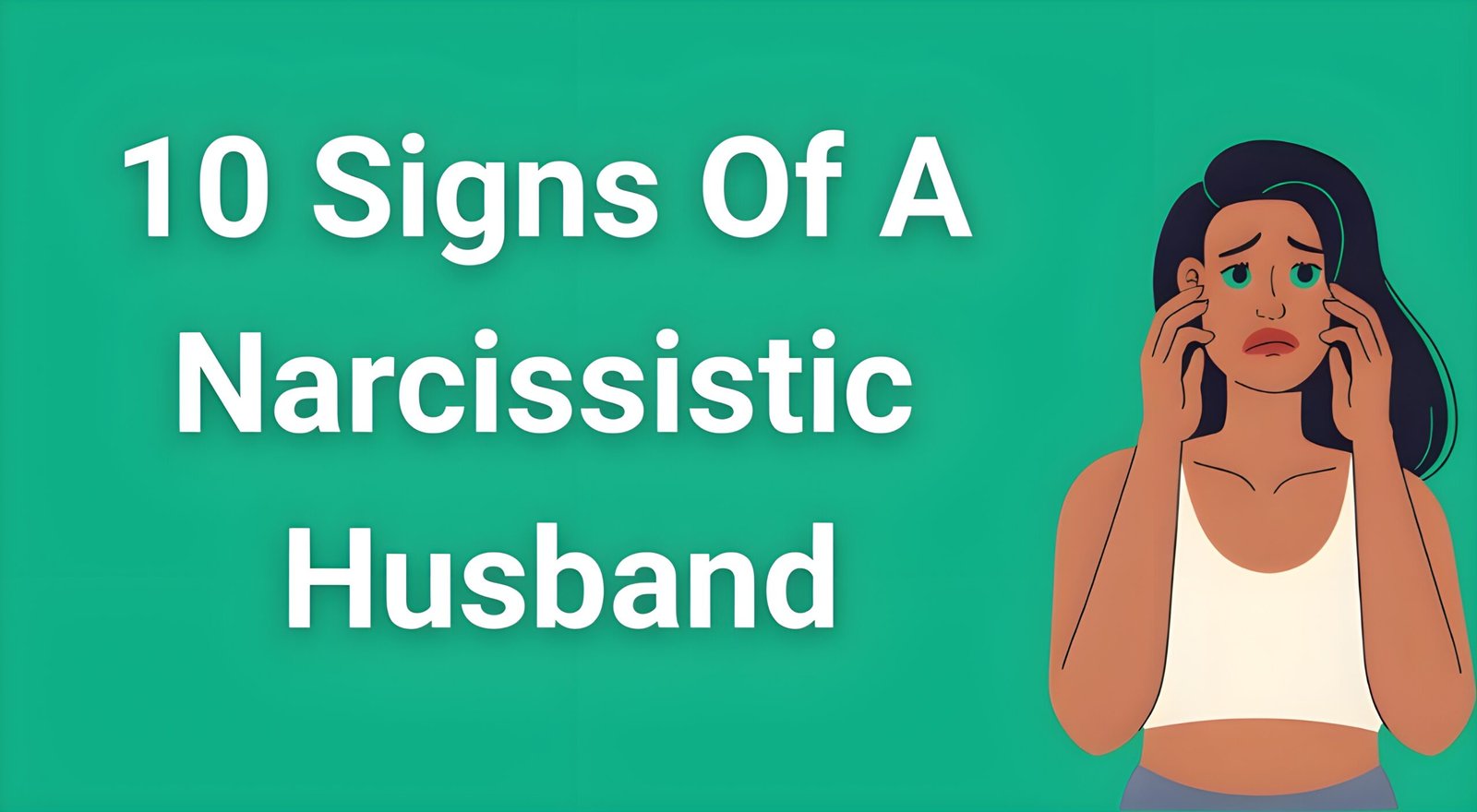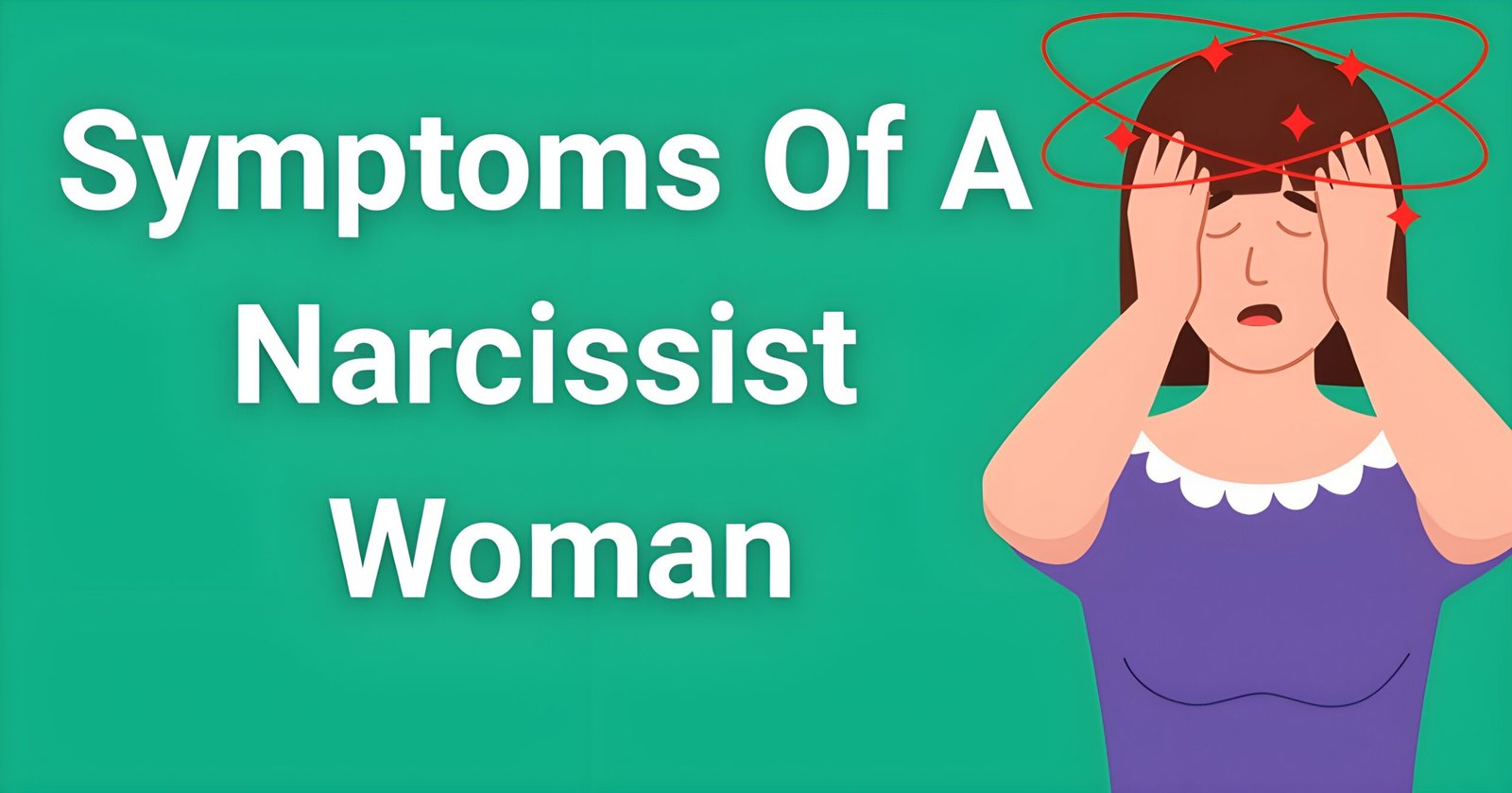Do you have a friend who makes you feel like you’re walking on eggshells? Someone who was once the most charming person you’d ever met, but now leaves you questioning your own sanity? If you’re nodding your head, you might be experiencing the stages of a narcissistic friendship – a predictable yet devastating pattern that millions of people unknowingly endure.
- What Makes Narcissistic Friendships Different?
- Stage 1: The Idealization Phase – “You’re Perfect!”
- Stage 2: The Devaluation Phase – “You’re Never Good Enough”
- Stage 3: The Discard Phase – “You’re Dead to Me”
- Stage 4: The Hoover Phase – “I Miss You So Much”
- How to Identify If You’re in a Narcissistic Friendship
- Breaking Free From Narcissistic Friendship Patterns
- Rebuilding Your Life After Narcissistic Friendship
- When You Can’t Leave Yet
- The Science Behind Narcissistic Friendship Patterns
- Frequently Asked Questions
Understanding these stages isn’t just academic knowledge; it’s your roadmap to freedom. Most people stuck in narcissistic friendships don’t realize they’re following a script that plays out the same way, every single time. The stages of a narcissistic friendship follow a calculated pattern designed to trap you in a cycle of emotional dependency and self-doubt.
What Makes Narcissistic Friendships Different?
Unlike healthy friendships that develop naturally over time through mutual respect and reciprocity, narcissistic friendships are manufactured relationships. The narcissistic friend doesn’t see you as an equal human being with your own needs, dreams, and boundaries. Instead, you become what psychologists call “narcissistic supply” – a source of attention, validation, and control that feeds their insatiable ego.
The stages of a narcissistic friendship aren’t random mood swings or personality clashes. They’re a systematic process of psychological manipulation that follows the same blueprint whether your narcissistic friend is a coworker, childhood companion, or someone you met last month.
Stage 1: The Idealization Phase – “You’re Perfect!”
The first stage of narcissistic friendship feels like finding your soulmate. This phase, known as idealization, is intoxicating and happens faster than any healthy relationship should develop. Your narcissistic friend doesn’t just like you – they’re completely obsessed with you in ways that feel incredibly flattering.
What Idealization Looks Like
During this stage, your narcissistic friend will:
Shower you with excessive attention and praise. They’ll call you their “best friend forever” after knowing you for just weeks. You’ll receive texts like “You’re the most amazing person I’ve ever met” and “I feel like I’ve known you my whole life.”
Mirror your interests and values perfectly. Suddenly, they love everything you love. Your favorite band becomes their favorite band. Your political views align perfectly. Your dreams become their dreams. This isn’t coincidence – it’s calculated mirroring designed to make you feel an instant, intense connection.
Love-bomb you with grand gestures. They might surprise you with expensive gifts, plan elaborate outings, or make dramatic declarations of friendship. The intensity feels overwhelming but in the most wonderful way.
Make you feel uniquely special and chosen. They’ll tell you things like “You’re not like other people” or “Finally, someone who really gets me.” This exclusivity makes you feel like you’ve won the friendship lottery.
The Psychology Behind Idealization
This stage serves a specific purpose in the narcissistic friendship cycle. Your narcissistic friend is essentially creating an emotional addiction. The overwhelming positive attention triggers your brain’s reward system, flooding you with dopamine and creating a powerful psychological bond.
Think of it like emotional cocaine. The high is so intense that you’ll spend the rest of the relationship trying to get back to this feeling, even when the friendship turns toxic. This is why the idealization phase is the most dangerous stage – it’s the hook that keeps you trapped through everything that comes next.
Red Flags Hidden in the Love-Bombing
Even during this seemingly perfect phase, warning signs exist if you know what to look for:
- The intensity feels too much, too fast
- They want to spend every waking moment together
- They share extremely personal information immediately
- They seem to have no other close friends
- They hint at being misunderstood or mistreated by others
- They expect immediate loyalty and availability from you
Most people miss these red flags because the positive attention feels so good. Your brain interprets this intensity as evidence of a deep connection, but healthy friendships don’t develop this quickly or intensely.
Stage 2: The Devaluation Phase – “You’re Never Good Enough”
Just when you think you’ve found your perfect friend, everything changes. The devaluation phase in narcissistic friendship stages is where the mask begins to slip, and you get your first glimpse of your friend’s true nature.
This transition usually happens within 3-6 months of the relationship, though it can occur sooner if you do something to threaten their ego or control. The shift is often so subtle that you’ll blame yourself for the change in dynamics.
What Devaluation Looks Like
The narcissistic friend who once worshipped you now begins to:
Criticize everything about you. Your clothes, your job, your other friends, your family – nothing is off-limits. These criticisms often come disguised as “helpful feedback” or “honest concern,” making them harder to recognize as abuse.
Use your vulnerabilities against you. Remember all those deep secrets you shared during the idealization phase? Now they become weapons. They’ll make cutting remarks about your insecurities, often in front of others to maximize the humiliation.
Gaslight your reality. When you point out their hurtful behavior, they’ll tell you “That never happened,” “You’re too sensitive,” or “You’re remembering it wrong.” This systematic reality distortion makes you question your own perceptions and memories.
Create chaos and then blame you for it. They’ll start arguments, create drama, or behave badly, then somehow make it all your fault. You’ll find yourself constantly apologizing for things you didn’t do.
Give you the silent treatment. When you displease them, they’ll withdraw all affection and attention. This psychological punishment is designed to make you desperate to win back their approval.
The Emotional Rollercoaster Effect
What makes the devaluation phase so devastating is that it’s not consistent cruelty. Your narcissistic friend will intersperse the criticism and coldness with occasional glimpses of their former charm. These brief moments of kindness – called “intermittent reinforcement” – actually strengthen your emotional bond to them.
It’s the same psychological principle that makes gambling addictive. You never know when the next “reward” is coming, so you keep trying to win back their approval, convinced that if you just try harder, be better, or understand them more, you can return to the beautiful relationship you once had.
Common Devaluation Tactics
The Comparison Game: They’ll constantly compare you unfavorably to others. “Sarah would never act like this” or “My ex-friend was so much more supportive.”
Public Humiliation: They’ll embarrass you in front of others, then claim they were “just joking” if you get upset.
Emotional Blackmail: They’ll threaten to end the friendship whenever you try to set boundaries or express your needs.
Triangulation: They’ll bring third parties into your conflicts, often painting you as the unreasonable one while positioning themselves as the victim.
Stage 3: The Discard Phase – “You’re Dead to Me”
If you’re reading this and recognizing yourself in the devaluation phase, you’re likely approaching or already in Stage 3. The discard phase in narcissistic friendship stages is perhaps the most brutal and confusing part of the entire cycle.
During discard, your narcissistic friend doesn’t just end the friendship – they attempt to destroy your sense of reality and self-worth in the process. This phase can happen suddenly after months or even years of devaluation, often triggered by something seemingly minor.
What Triggers the Discard Phase
The discard phase typically happens when:
- You start setting boundaries or standing up for yourself
- You achieve something that threatens their sense of superiority
- You begin questioning their behavior or the friendship
- They find a new source of narcissistic supply
- You become “too much work” to maintain control over
- You discover their lies or manipulations
The trigger might seem insignificant to you, but to your narcissistic friend, any threat to their control or superiority complex justifies complete destruction.
What the Discard Phase Looks Like
Complete communication cutoff. They’ll block you on social media, ignore your calls and texts, and act like you never existed. This sudden withdrawal is intentionally devastating because they know how much their attention means to you.
Smear campaigns. They’ll tell mutual friends terrible things about you, often projecting their own behavior onto you. You might discover that people you thought were friends now view you as “crazy,” “toxic,” or “manipulative.”
Rewriting history. Suddenly, every positive memory from your friendship gets reframed as evidence of your problems. The beautiful experiences you shared become proof of your instability or neediness.
Playing the victim. They’ll position themselves as the long-suffering friend who finally had to cut ties with your toxic behavior. This narrative protects their ego while maximizing your pain.
Cruel final communications. If they do communicate during discard, it’s often to deliver devastating final blows to your self-esteem. These messages are designed to haunt you long after the friendship ends.
The Psychological Impact of Discard
The discard phase creates what psychologists call “cognitive dissonance” – the painful mental state that occurs when your experiences contradict your beliefs. You believed you had a meaningful friendship, but now you’re being treated like an enemy. This contradiction is so uncomfortable that many people blame themselves rather than accept that their friend was manipulative all along.
The sudden loss of someone who was once so important to you creates genuine grief. But unlike normal grief, you’re grieving someone who’s actively trying to hurt you, which complicates the healing process.
Stage 4: The Hoover Phase – “I Miss You So Much”
Just when you’re starting to heal from the discard phase, your narcissistic friend might reappear with promises, apologies, and renewed attention. This final stage in narcissistic friendship phases is called the “hoover” phase, named after the vacuum cleaner because they’re trying to suck you back into their orbit.
Not every narcissistic friendship includes a hoover phase. It typically happens when:
- Their new source of supply disappoints them
- They’re going through a difficult period and need support
- They see you’re moving on and their ego can’t handle it
- They need something specific from you (money, connections, validation)
What Hoovering Looks Like
Nostalgic messages. You’ll receive texts referencing inside jokes, shared memories, or how much they miss your friendship. These messages are designed to trigger your emotional attachment.
False apologies. They might apologize for their behavior, but these apologies are typically vague and designed to minimize their actions rather than take genuine responsibility.
Emergency situations. They’ll contact you during crises, knowing your empathy will override your logical boundaries. “I really need you right now” becomes their manipulation tool.
Gifts and grand gestures. Like the idealization phase, they might send flowers, expensive gifts, or make dramatic declarations of how much they’ve changed.
Promise of change. They’ll claim they’ve been in therapy, found religion, or had some other life-changing experience that makes them a better person now.
The Danger of the Hoover Phase
The hoover phase is dangerous because it reactivates all the trauma bonds and positive memories from the idealization phase. Your brain, which has been grieving this relationship, floods with relief and hope when they return.
But here’s the crucial truth: the hoover phase isn’t genuine change. It’s simply a reset button that takes you back to Stage 1, beginning the entire cycle again. The narcissistic friend hasn’t developed empathy, learned healthy communication skills, or addressed their fundamental inability to maintain reciprocal relationships.
If you take them back, you’ll typically experience a brief honeymoon period followed by an accelerated journey through devaluation and discard. Each cycle tends to become shorter and more intense than the last.
How to Identify If You’re in a Narcissistic Friendship
Understanding the stages of a narcissistic friendship is only helpful if you can recognize when you’re experiencing them. Here are key warning signs that indicate you might be dealing with a narcissistic friend:
Emotional and Mental Signs
- You constantly question your own memories and perceptions
- You feel like you’re walking on eggshells around them
- Your self-esteem has decreased since the friendship began
- You find yourself making excuses for their behavior to others
- You feel emotionally drained after spending time with them
- You’re always trying to win back their approval or affection
Behavioral Red Flags
- They expect immediate responses to their communications
- They become angry when you spend time with other friends
- They never take responsibility for their mistakes
- They turn every conversation back to themselves
- They compete with you instead of celebrating your successes
- They violate your boundaries regularly and show no remorse
Relationship Patterns
- The friendship feels more like an emotional roller coaster than a stable connection
- You give much more than you receive
- They only contact you when they need something
- They share your private information with others
- They create drama and conflict regularly
- They use guilt and manipulation to control your behavior
If you’re recognizing these patterns, you’re not imagining things. Trust your instincts – they’re trying to warn you about a dangerous situation.
Breaking Free From Narcissistic Friendship Patterns
Recognizing that you’re in a narcissistic friendship is the first step toward freedom, but actually breaking free requires strategy, support, and often professional guidance. The trauma bonds created during these relationships are real and powerful, making it difficult to simply walk away even when you intellectually understand the situation.
Understanding Trauma Bonds
The intense emotional connection you feel isn’t love or genuine friendship – it’s a trauma bond. These bonds form when someone alternates between abuse and affection, creating a powerful psychological dependency. Your brain becomes addicted to the cycle of tension and relief, making the relationship feel impossible to leave despite the pain it causes.
Breaking trauma bonds isn’t a matter of willpower alone. It requires understanding the neurological changes that occur in abusive relationships and developing specific strategies to rewire your brain’s response patterns.
Creating a Safety Plan
Before you take any action to distance yourself from a narcissistic friend, you need a comprehensive safety plan:
Document their behavior. Keep records of manipulative messages, incidents of abuse, and witnesses to their behavior. This documentation helps you maintain clarity about reality when they inevitably try to gaslight you.
Build your support network. Identify trusted friends, family members, or professionals who can provide emotional support during the healing process. Isolation is one of the narcissist’s most powerful tools, so rebuilding connections is essential.
Prepare for escalation. When narcissistic individuals lose control, they often escalate their behavior. Be prepared for smear campaigns, attempts to turn others against you, or even more direct forms of harassment.
Strengthen your boundaries. Practice saying no, identifying your limits, and communicating your needs clearly. These skills will protect you in this relationship and future ones.
The No Contact Approach
For many people, the only effective way to break free from narcissistic friendship cycles is complete no contact. This means:
- Blocking them on all social media platforms
- Changing your phone number if necessary
- Avoiding places where you might encounter them
- Not responding to any attempts at communication
- Asking mutual friends not to share information about you
No contact feels extreme because it goes against everything we’re taught about handling conflicts in relationships. But narcissistic relationships aren’t normal conflicts – they’re systematic psychological manipulation that requires absolute boundaries to overcome.
Professional Support Options
Healing from narcissistic friendships often requires professional guidance because the psychological damage can be extensive and complex. Consider seeking help from:
Trauma-informed therapists who understand the specific dynamics of narcissistic abuse and can help you process the experience without re-traumatization.
Support groups for survivors of narcissistic abuse, where you can connect with others who understand your experience and learn practical coping strategies.
Specialized assessment services that can help you gain clarity about your specific situation and develop a personalized recovery plan.
If you’re struggling to understand exactly what you’ve experienced or need validation that your perceptions are accurate, a comprehensive analysis from a certified narcissistic abuse specialist can provide the clarity you need to move forward with confidence.
Rebuilding Your Life After Narcissistic Friendship
Recovery from narcissistic friendship abuse is possible, but it takes time, patience, and the right support. The healing process involves rebuilding your sense of self, learning to trust your instincts again, and developing healthier relationship patterns.
Reclaiming Your Identity
One of the most devastating effects of narcissistic friendship is the loss of your authentic self. During the relationship, you likely changed your behavior, suppressed your needs, and adapted your personality to avoid conflict. Recovery involves rediscovering who you are outside of that dynamic.
Start by reconnecting with interests, values, and relationships that the narcissistic friend discouraged or criticized. Notice what brings you genuine joy rather than what you think will gain others’ approval. This process of identity reclamation is essential for preventing future toxic relationships.
Learning to Trust Yourself Again
Gaslighting and reality distortion leave many survivors doubting their own perceptions and judgment. Rebuilding self-trust requires practice and validation. Keep a journal of your experiences and emotions. Notice when your instincts warn you about people or situations, and honor those feelings instead of dismissing them.
Consider working with a workbook designed specifically for trauma bond recovery, which provides daily exercises and structured support for rewiring your brain’s response patterns and rebuilding your confidence in your own perceptions.
Developing Healthy Relationship Skills
After experiencing narcissistic friendship, you might feel afraid of all close relationships or find yourself unconsciously seeking similar dynamics. Learning to recognize healthy relationship patterns is crucial for your future wellbeing.
Healthy friendships involve:
- Mutual respect and reciprocity
- Clear communication without manipulation
- Support for each other’s growth and success
- Respect for boundaries and individual differences
- The ability to resolve conflicts without abuse
- Consistency in behavior and treatment
Creating Future Protection Strategies
Once you understand the stages of a narcissistic friendship, you can develop strategies to protect yourself from future manipulation:
Trust your gut feelings. If someone feels too good to be true or pushes for intimacy too quickly, proceed with caution.
Watch for red flags early. Love-bombing, boundary violations, and excessive intensity are warning signs, even when they feel good.
Maintain your support network. Don’t allow any single relationship to become your entire world.
Practice healthy boundaries. Know your limits and communicate them clearly from the beginning of any relationship.
Continue your healing work. Regular therapy, support groups, or healing resources help maintain your emotional health and awareness.
When You Can’t Leave Yet
Sometimes you recognize that you’re in a narcissistic friendship but can’t immediately cut contact due to shared living situations, work relationships, family connections, or other practical constraints. If you’re in this situation, focus on emotional protection strategies while you plan your exit.
Gray rock technique: Become as uninteresting as possible during interactions. Give short, boring responses that don’t provide emotional fuel for their manipulation.
Information diet: Stop sharing personal information, emotions, or details about your life that can be used against you later.
Document everything: Keep records of their behavior for your own clarity and potential future legal protection.
Build external support: Cultivate relationships and activities outside of their influence to maintain perspective and emotional support.
Plan strategically: Use this time to build resources, skills, and support systems that will help you achieve independence safely.
Remember, staying in a toxic situation while building your escape plan isn’t weakness – it’s survival strategy. Specialized guidance can help you navigate this challenging period while protecting your mental health and planning for freedom.
The Science Behind Narcissistic Friendship Patterns
Understanding the psychological mechanisms that drive the stages of a narcissistic friendship can help validate your experience and provide hope for recovery. These patterns aren’t random personality conflicts – they’re predictable psychological phenomena that affect millions of people.
Narcissistic Supply and Emotional Regulation
Narcissistic individuals lack the ability to regulate their emotions internally, so they depend on external validation (narcissistic supply) to maintain their self-image. Your friendship serves this function – you’re not a person to them, but a source of attention, admiration, and control.
When you stop providing adequate supply (by setting boundaries, achieving success, or questioning their behavior), they experience what psychologists call “narcissistic injury.” This triggers rage, manipulation, or discard as they attempt to restore their ego equilibrium.
The Intermittent Reinforcement Schedule
The alternating pattern of affection and abuse in narcissistic friendships creates what behaviorists call an intermittent reinforcement schedule – the most powerful form of behavioral conditioning. This is the same mechanism that makes gambling addictive.
When rewards (love, attention, kindness) are unpredictable, your brain becomes hypervigilant for the next positive experience. This creates intense bonding and makes you willing to endure increasingly negative treatment for occasional moments of connection.
Cognitive Dissonance and Trauma Bonding
The contradiction between your friend’s charming public persona and their private cruelty creates cognitive dissonance – the uncomfortable mental state that occurs when your experiences contradict your beliefs. To resolve this discomfort, many people unconsciously blame themselves rather than accepting that their friend is manipulative.
This self-blame, combined with the intermittent reinforcement, creates trauma bonds – powerful emotional connections that feel like love but are actually the result of systematic psychological manipulation.
Frequently Asked Questions
Q: How long does each stage of a narcissistic friendship typically last?
A: The timeline varies significantly based on the specific individuals involved and circumstances. Idealization can last anywhere from a few weeks to several months. Devaluation might continue for months or even years, especially if you don’t recognize what’s happening. Discard can happen suddenly or gradually, and hoovering may occur multiple times over years. The key is recognizing the patterns rather than focusing on specific timeframes.
Q: Can a narcissistic friend actually change with therapy?
A: While anyone can theoretically change with intensive therapy and genuine commitment, narcissistic personality patterns are among the most difficult to treat. True change requires the person to acknowledge their harmful behavior, develop empathy, and commit to long-term therapeutic work – qualities that are fundamentally incompatible with narcissism. Most “changes” you see are temporary manipulations designed to regain control rather than genuine personal growth.
Q: Is it possible to maintain a friendship with a narcissistic person if you set boundaries?
A: Narcissistic individuals typically react to boundaries as personal attacks or challenges to their superiority. While you might achieve temporary peace through careful management of the relationship, you’ll likely find yourself constantly walking on eggshells and suppressing your authentic self. Most mental health professionals recommend against trying to maintain close relationships with untreated narcissistic individuals due to the inevitable emotional harm.
Q: Why do I keep attracting narcissistic friends?
A: People who repeatedly attract narcissistic relationships often have traits that make them appealing targets: high empathy, people-pleasing tendencies, difficulty setting boundaries, low self-esteem, or past trauma that makes unhealthy dynamics feel familiar. This isn’t your fault – it’s typically the result of early conditioning or traumatic experiences. Understanding these patterns is the first step toward breaking the cycle.
Q: How can I tell the difference between a difficult friend and a narcissistic friend?
A: Difficult friends might have challenging personalities, communication problems, or go through rough periods, but they still show genuine care for your wellbeing, take responsibility for their mistakes, and respect your boundaries when clearly communicated. Narcissistic friends consistently show a pattern of manipulation, emotional abuse, inability to empathize, and refusing to acknowledge their harmful behavior. The key difference is empathy – difficult people can still care about how their actions affect you, while narcissistic individuals typically cannot.
Q: What should I do if we have mutual friends who don’t believe me about their behavior?
A: This is one of the most painful aspects of narcissistic relationships. Focus on protecting yourself rather than convincing others. Document incidents, maintain your truth regardless of others’ beliefs, and seek support from people who do understand your experience. Remember that narcissistic individuals are often skilled at public impression management, so others may never see their private behavior. Your healing doesn’t depend on external validation – it depends on trusting your own experiences and taking action to protect yourself.
Understanding the stages of a narcissistic friendship is the first step toward freedom, but healing from these experiences often requires professional guidance and specialized support. If you’re struggling to break free from toxic friendship patterns or need clarity about your specific situation, remember that help is available and recovery is absolutely possible.

